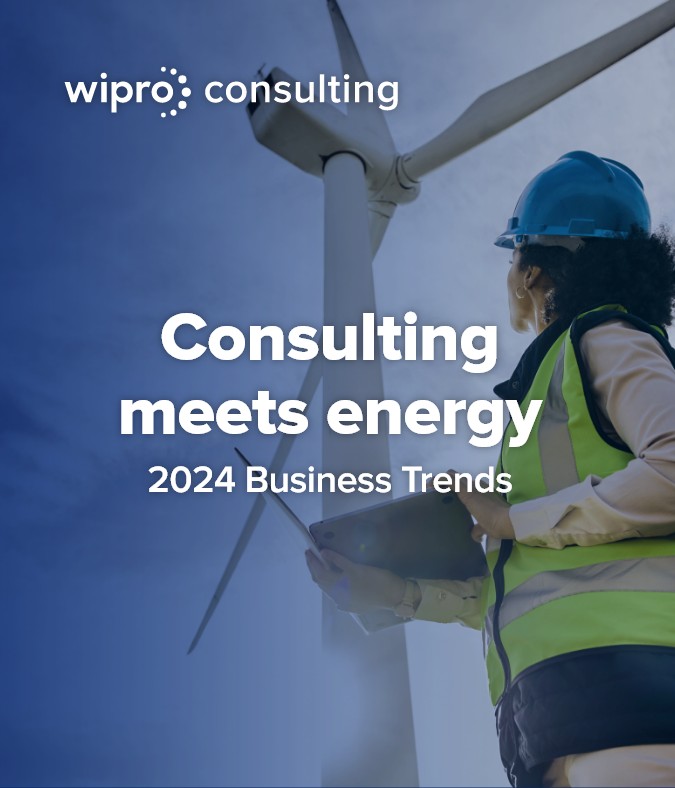These Five Trends Are Reshaping the Energy Industry in 2024
On the heels of COP28 and the pledges made there, the global energy industry must accelerate efforts to bring alternative, low-carbon energy sources to market. To make progress in areas like the energy transition, decarbonization, and scaling/integrating renewables, energy companies will need to focus less on identifying innovations and more on deploying and scaling them.
But how? What’s the best way to approach these initiatives to ensure returns? Collaboration is vital to the success of these programs. Energy companies must cultivate an ecosystem of technologies and partnerships to maximize business value and impact.
The following trends highlight key focus areas for energy companies in 2024 and beyond and show how an integrated approach to digitalization can help companies develop lucrative new business models for sustainable growth.
1. Renewed focus on Industry 4.0
New regulations and market demands are putting significant pressure on oil and gas companies to modernize legacy assets and enhance operations. For example, the growing demand for localized energy sources forces countries to update aging infrastructure and improve cyber-resilience while unifying capabilities that have developed piecemeal over the years. Country-specific standards for industrialization, like those in Germany and India, will help guide digital transformation, leading to more sophisticated digital operations requiring compliance with local laws and frameworks.
As governments crack down on the environmental impact of industrial operations, resource efficiency and detailed reporting will become increasingly important, putting additional pressure on suppliers throughout the value chain to invest in Industry 4.0 to increase data capture and transparency. Further refining digital operations can help companies – both early and late adopters – cut costs and free up more resources to invest in larger, more ambitious projects.
2. Technology collaborations for systemic decarbonization
Decarbonizing value chains will require energy businesses to work with various technologies, innovators, and service companies throughout their operations. Collaborations with fuel distributors, battery manufacturers, vehicle manufacturers, and technology service providers are helping to build the infrastructure, platforms, and EV capabilities needed to support the energy transition. Forward-thinking companies combine data analytics, IoT, and responsible GenAI to analyze distribution while developing more energy-efficient supply chains and less carbon-intensive products. Robotics, AI, and machine learning will improve asset operations by automating inspections, enhancing predictive maintenance, and assisting in detecting issues like flares and methane leaks. With improved emissions capture, energy companies are leveraging modeling platforms to explore alternate modes of operations for decarbonization. Global coordination of responsible AI must underpin these efforts.
3. A tech-first transition to new business models
Advanced technologies can help companies explore new products and business models, such as converting plants to produce adjacent products that are less carbon-intensive. Data analytics, AI/ML, and digital twins are helping with research and development and testing new models and products. Blockchain technology will play an increasingly important role, supporting the development of distributed energy resources and the traceability of molecules, products, procurement, and credits.
Energy-as-a-service offerings will become more popular to drive the adoption of low-carbon energy sources by minimizing upfront capital expenses for customers. This is a significant opportunity for energy providers. To seize it, companies must review their existing technology programs to be sure they have the necessary capabilities to support managed service offerings. Technologies like cloud, 5G, connected edge, and remote sensing will be critical.
4. Continued transitions to data platforms and open standards
To scale new business models and improve the performance of existing assets, companies must shift siloed data to platforms that are more accessible and flexible. Cloud platforms and open industry standards will enable new capabilities through data consumption and applications designed to meet specific industry requirements, such as security protocols and reporting standards. Shifting to more accessible data platforms will also help companies address challenges associated with knowledge management and cross-generational training. Increasingly, AI-driven training will synthesize employee experience data points and other information to build programs that create the energy industry workforce of the future.
5. Scaling and integrating renewables
Energy businesses are diversifying their portfolios with renewable fuels and renewable power assets, influencing Scope 1, 2, and 3 emissions. As companies overhaul their business models to support ambitious sustainability goals, they must scale and integrate capabilities to launch products like hydrogen, sustainable and renewable fuels, wind, solar, and geothermal assets. This requires encouraging entities throughout the value chain to adopt standard practices, as seen in the shift to sustainable aviation fuel. Companies will need to extend existing digital capabilities to advance the development of renewable energies and the underlying platforms and integrations needed in emerging operational landscapes and business models.
Energy companies have a unique opportunity to redefine the industry by pursuing alternative fuel sources and business models. This is not a small undertaking, and 2024 will be just one year of an extended journey. Strategic implementation and coordination of technologies like AI, industry cloud, 5G, IoT, and data analytics will help accelerate returns on investment and maximize impact at this moment when the industry has reached an inflection point.
 Locations
Locations




